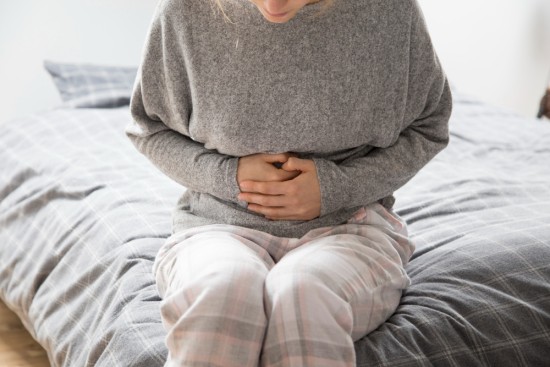Watch Out for These Signs and How to Treat them As Revealed by Gallstone Surgeon Dr Amita Jain
Many times you might suffer from pain in your abdomen or between your shoulder blades, do not ignore them repeatedly, as they might be an indication that you may be suffering from gallstones.
Gallstones are basically, the hardened deposits of digestive fluids that could develop in your gallbladder. Your gallbladder is one small, pear-shaped organ on the right side of your abdomen, just below your liver. The gallbladder holds the digestive fluid also, known as bile that is released into your small intestine.
Dr. Amita Jain says gallstones vary in size from as small as a grain of sand to as big as a golf ball. Specific people develop only one gallstone, while others develop multiple gallstones at the same time.
Usually, people who experience symptoms from their gallstones generally, need surgery for the removal of gallbladder. Gallstones that do not cause any signs and symptoms typically do not need treatment.
In this blog, Delhi’s top gallbladder surgeon Dr Amita Jain, shares the symptoms that you need to watch and the ways it could be treated.
Symptoms
Gallstones might cause no signs or symptoms. If a gallstone lodges inside a duct and causes a blockage, the signs and symptoms may include:
- Sudden and quickly intensifying pain in your upper right portion of the abdomen
- Sudden and fast intensifying pain in the center of your abdomen, just beneath your breastbone
- Back pain between your shoulder blades
- Pain in the right shoulder
- Nausea or vomiting
Gallstone pain might last several minutes to a few hours.

Time to consult a doctor
Make an appointment with your doctor if you have any of the above signs or symptoms that worry you. Seek urgent care if you form signs and symptoms of a serious gallstone complication, like:
- Abdominal pain so intense that one cannot sit still or find an easy position
- Skin and white parts of your eyes turning yellow(jaundice)
- High fever along with chills
Diagnosis
Test and procedures that are used to diagnose gallstones and its complications are:
- Abdominal ultrasound
- Endoscopic ultrasound
- Other imaging tests (such as hepatobiliary iminodiacetic acid (HIDA) scan, computerized tomography (CT), magnetic resonance cholangiopancreatography (MRCP) or endoscopic retrograde cholangiopancreatography (ERCP)
- Blood tests
Treatment
The majority of people with gallstones that do not cause symptoms will never require treatment. Your doctor will decide if treatment for gallstones is indicated based on your symptoms and the results of diagnostic testing.
Your doctor may recommend you to stay alert towards any symptoms. Some of the treatment methods are:
· Surgery to remove the gallbladder (cholecystectomy)
Your doctor might recommend surgery to remove your gallbladder since gallstones repeatedly recur. Once your gallbladder is removed, bile flows straight from your liver into your small intestine, instead of being stored in your gallbladder.
You do not require your gallbladder to survive, and gallbladder removal does not impact your ability to digest food, but it can cause diarrhea, which is generally, temporary.
· Medications (to dissolve gallstones)
Medications you take orally, might help dissolve gallstones. But it could take months or years of treatment to dissolve your gallstones in that manner, and gallstones will possibly form again if treatment is stopped.
At times medications do not work. Medications for gallstones are not usually used and are reserved for those who cannot undergo surgery.

Dr Amita Jain is a surgeon with the highest degree of professional competence, precision and surgical craftsmanship. Performed all complicated general surgery procedures with in depth knowledge of invasive and few minimal invasive and onco surgical techniques. Underwent special training in trauma, executed various trauma-related complex life-saving neurosurgical procedures, reconstructed injured mangled limbs and performed vascular and reconstructive procedures with critical care.
Dr Amita Jain holds 28 plus years of rich experience in Trauma and General Laparoscopic Surgeries (including Gallbladder stone removal, appendix removal, hernia repair surgery, piles and fissure surgeries). She was the Professor Surgery of at the Army College of Medical Sciences and Base Hospital Delhi Cantt. In 1994 she was commissioned as Surgeon under the United Nations Mission in Congo. From 2020 to 2022, she worked with Bansals Hospital. Currently, Dr Amita Jain is the Senior Consultant, (Speciality: General and Laparoscopic Surgeon) at Artemis Lite Hospital, New Delhi and Sr. General and Laparoscopic Surgeon at Rainbow Children Hospitals, Malviya Nagar, Delhi.